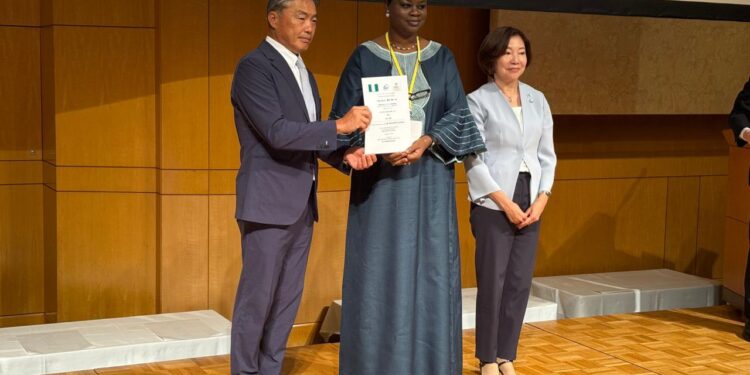Japan has officially designated the city of Kisarazu as the hometown for Nigerians seeking to live and work in the country, marking a significant milestone in bilateral relations between the two nations.
The announcement was made on Thursday during the 9th Tokyo International Conference for African Development as part of Japan’s broader strategy to strengthen cultural diplomacy, boost economic growth, and enhance workforce productivity.
Under this groundbreaking partnership, the Japanese government will establish a special visa category specifically for highly skilled, innovative, and talented young Nigerians who wish to relocate to Kisarazu. The initiative will also extend benefits to Nigerian artisans and blue-collar workers who are ready to upgrade their skills, providing them with special dispensation visas to work in Japan.
The ceremony, conducted by the Japan International Cooperation Agency, simultaneously announced similar designations for three other African nations. The city of Nagai in Yamagata Prefecture was named as Tanzania’s hometown, Sanjo in Niigata Prefecture became Ghana’s official hometown, and Imabari in Ehime Prefecture was designated as Mozambique’s hometown.
Nigeria’s Charge d’Affaires, Mrs. Florence Akinyemi Adeseke, who is also serving as Acting Ambassador to Japan, received the official certificate alongside Yoshikuni Watanabe, the Mayor of Kisarazu. The certificate formally establishes Kisarazu as Nigeria’s designated hometown in Japan.
This arrangement builds on existing ties between Kisarazu and Nigeria, particularly the city’s role as the official host town for the Nigerian Olympic contingent during the 2020 Tokyo Olympics. The Nigerian team conducted their pre-games training camps and acclimatisation programs in Kisarazu before moving to the Olympic village for the COVID-19-delayed games.
The four designated cities are expected to create a foundation for two-way exchanges focused on manpower development, which will contribute value to the economic growth of both Japan and the participating African nations. Local authorities in Japan are optimistic that these designations will help increase their cities’ populations, supporting regional revitalization efforts across the country.
During his opening address at TICAD9, Japanese Prime Minister Shigeru Ishiba announced $5.5 billion in new investment for Africa while emphasizing the importance of mutual understanding, local solutions, and collaborative efforts for the continent’s development. The Prime Minister outlined Japan’s commitment to three key areas: private sector-led sustainable growth, youth and women empowerment, and regional integration and connectivity within and beyond Africa.
Prime Minister Ishiba acknowledged Japan’s demographic challenges, including an aging population and declining agricultural land, while stressing that locally rooted solutions remain essential for Africa’s development. He appealed to African countries to assist Japan as it addresses these demographic and economic challenges, highlighting the mutual benefits of the partnership.

















